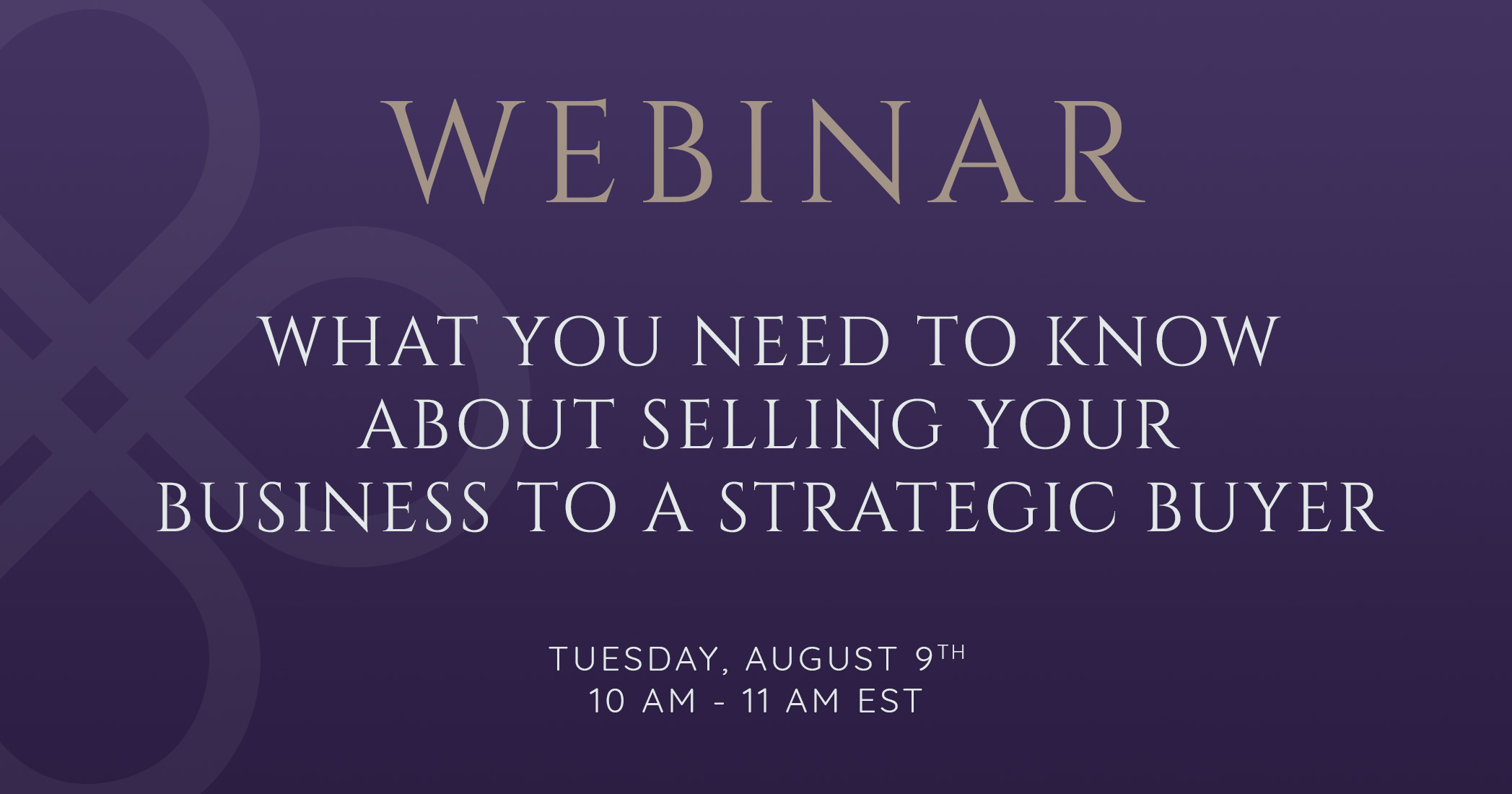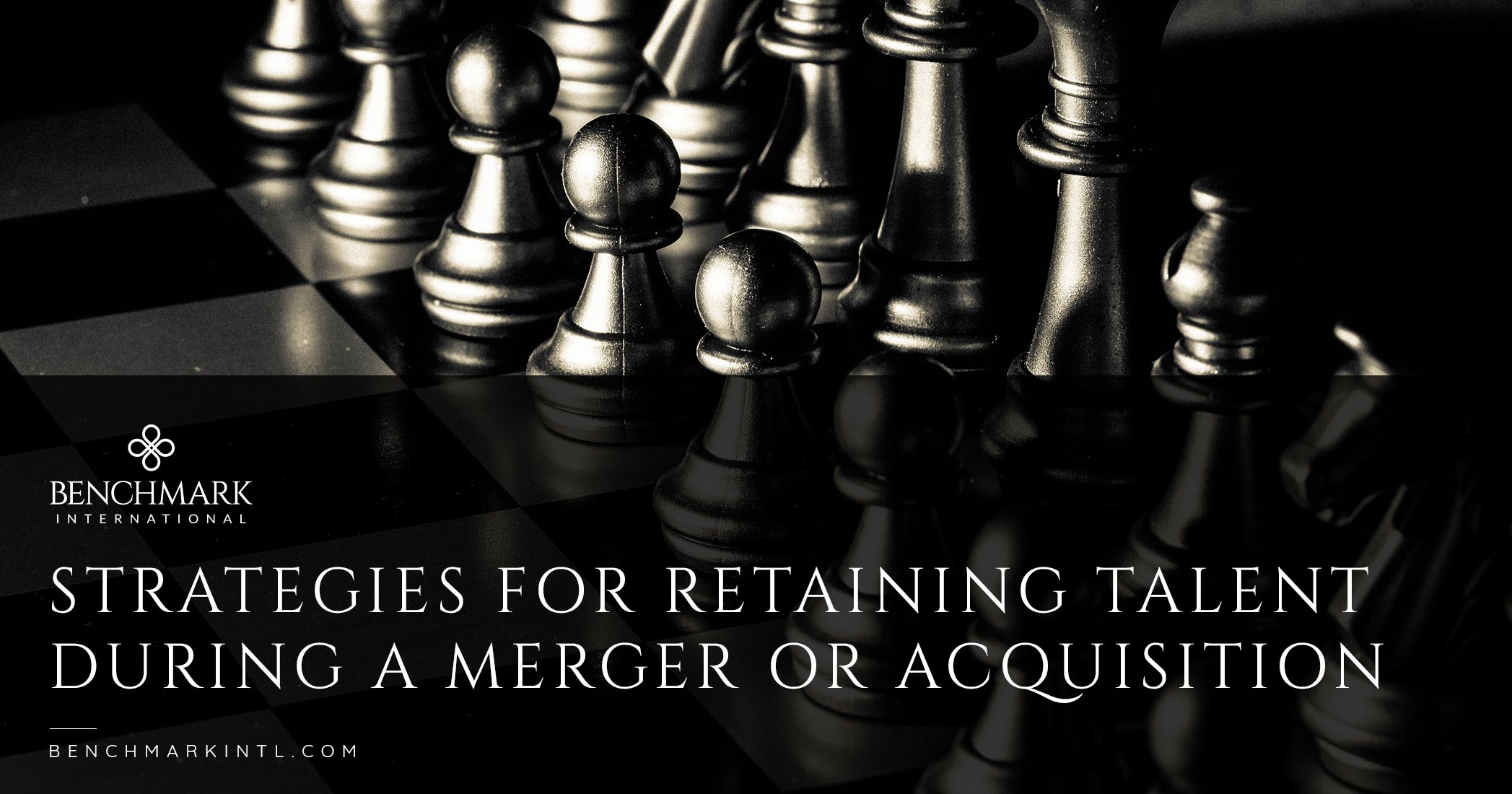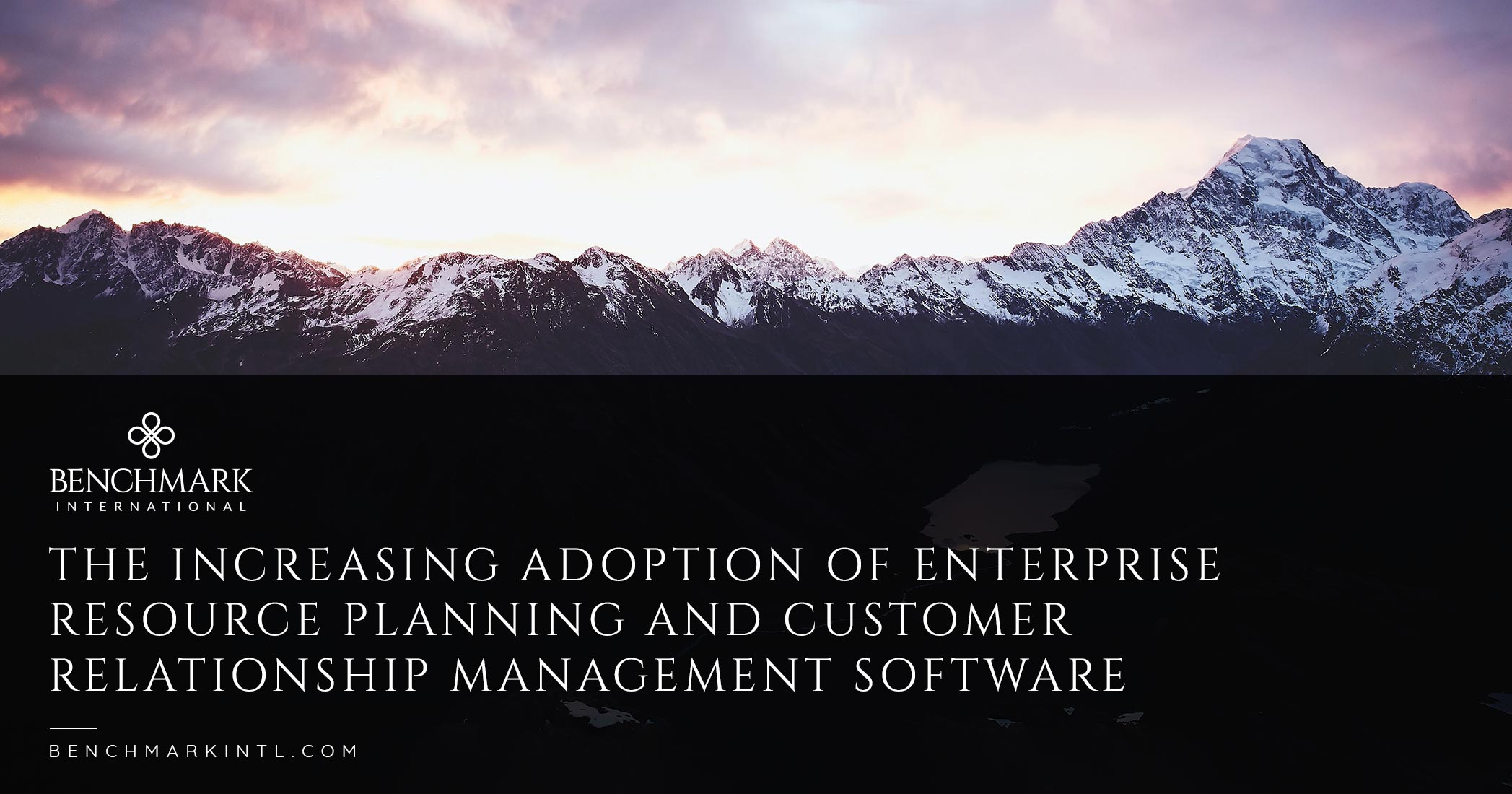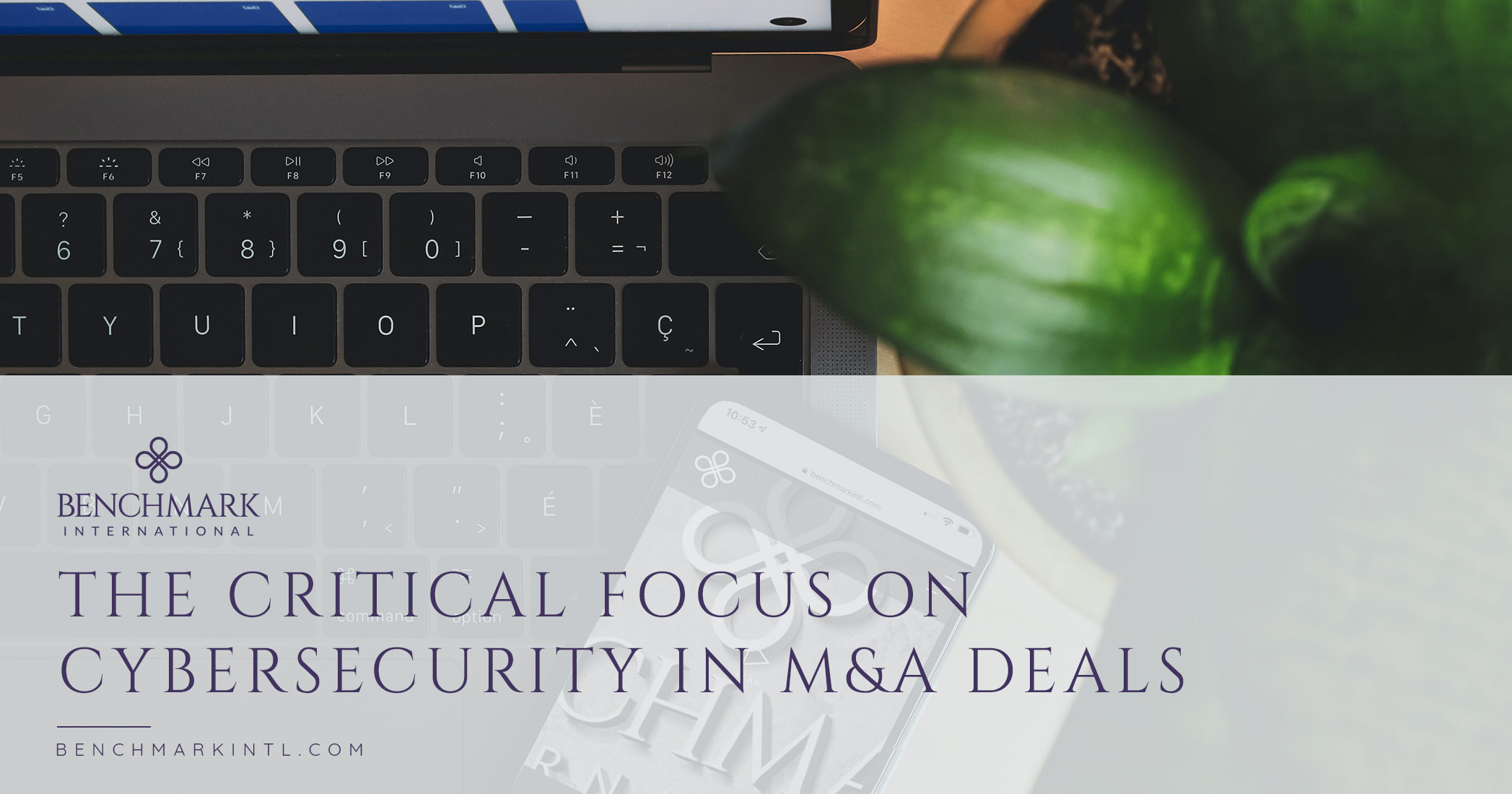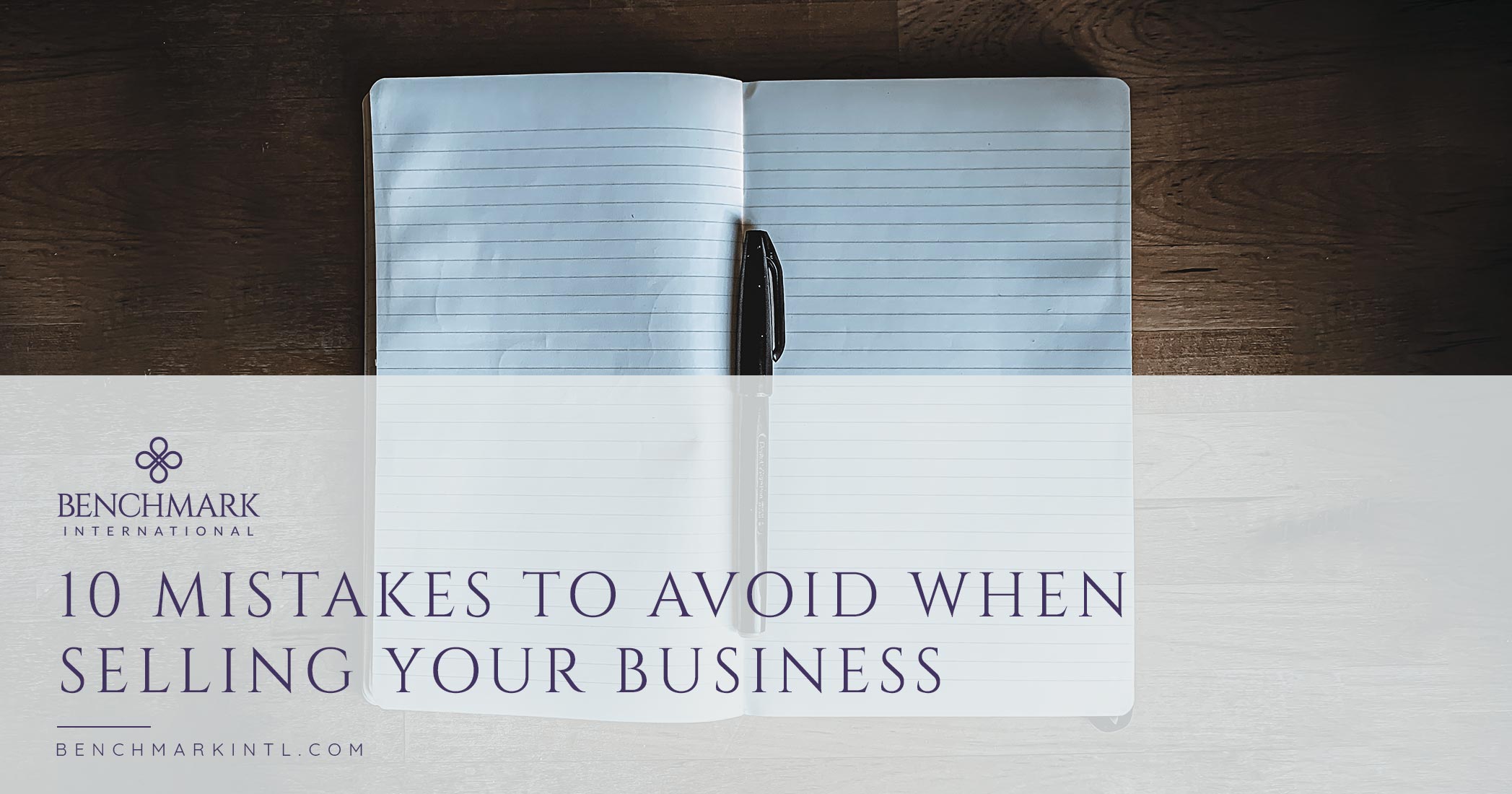Join us for the complimentary webinar: What You Need To Know About Selling Your Business To A Strategic Buyer.
READ MORE >>Archives
Upcoming Webinar: What You Need To Know About Selling Your Business To A Strategic Buyer
The M&A Process From A Buyer’s Perspective
When it comes to mergers and acquisitions, it is common for a seller to struggle to see the transaction from a buyer’s point of view. This is quite understandable because a business owner spends years, and even decades, building their company into a successful venture. It makes it more difficult to see the transaction from a potential buyer’s perspective. Many M&A transactions fall through because the seller and buyer simply cannot get on the same page. As a seller, you can work with an experienced M&A advisor to help you manage your expectations for the value of your company so that you can not only get the most out of your deal but also make sure the deal goes through. If you’re selling a business, you should understand how the valuation of a company works, what it is based on, and what is important to a buyer.
READ MORE >>Share this:
M&A Trends In The Lower And Middle Markets
In the first quarter of 2022, global middle-market M&A activity maintained the momentum that we saw in 2021. Last year, lower and middle-market companies played major roles in deal-making activity. Companies of all sizes enjoyed significant buyer interest in sectors ranging from tech, transportation, healthcare, manufacturing, and logistics.
A notable imbalance in supply and demand in the lower and middle markets has been driving up the valuations of healthy companies in hot sectors. This trend is expected to continue through 2022 for strong companies in the lower and middle markets, especially in sectors such as healthcare, cybersecurity, cloud computing, artificial intelligence, and niche manufacturing.
READ MORE >>Share this:
Seller Handover In A Business Sale
Handover Process
After completing the sale of your business, there is typically a handover process between the seller and the buyer. One of a buyer’s most significant concerns when taking over a business is that the company’s performance continues as it was before the sale. When a seller is willing to stay on for a handover process post-closing, the buyer has increased trust in the business, resulting in the business selling more quickly and at a higher valuation. Therefore, it will be beneficial to both parties to plan this part of the process well and in advance of the time that the handover will take place. The length, compensation, etc., of the Handover period will be worked through during the Purchase Agreement negotiations. If there is a failure to recognize and offer an acceptable handover period for the business, it could cause a deal to fall apart while it is in due diligence.
Stages Of A Business Handover
The typical stages of a business handover are the Training Stage, Handover Stage, and Assistance Stage. Immediately following the sale, the seller will usually continue to run 100% of the business. During this time, the new owner will take some time to familiarize themselves with the business. Then, as the Training stage begins, the seller will slowly reduce their involvement while the buyer continues to increase theirs. In the Training stage, the seller must create a checklist of items that he can run through with the new owner. Mark each item as complete once it’s finished, and keep this for your records if you run into any issues down the road. It is a good idea to observe how a day in the life of your business typically goes. Take note of every payroll task you complete, every person you communicate with, any supplier or contractor documentation, provide copies of all budgets, information about cash flow, etc. Continue with this process until you feel that you have been able to document all of the particulars that the new owner will need to know in order to keep the business operating smoothly. As the seller trains the new owner, the seller will slowly start to reduce their involvement while the buyer continues to increase theirs. This sequence will continue until the complete handover is achieved.
During the Handover stage, the new owner runs 75%-100% of the business with the seller still on hand to help answer questions and ensure that processes are running smoothly. If you have had a successful Training stage, the new owner will have increased confidence in successfully running the business. This may matter to the seller as well, particularly if there are any deferred payments or earnouts that have been agreed to in the structure of the sale. It is imperative to train the buyer and put them in a position to be successful, as both parties benefit from doing so. The new owner will now be in charge of making crucial decisions and bringing innovative ideas and future plans for the business to the table. Customer and employee relationships with the new owner should be solidly in place at this point, and the seller should have very limited involvement in the day-to-day activities of the business.
Once the new owner is running 100% of the business, it is common to enter the Assistance stage, where both parties have made an agreement to remain in contact for a set period of time in case there are any questions that come up. While the seller is no longer directly engaged with the daily runnings of the company, it is best for them to make themselves available to answer any questions that the new owner might have. Many times the majority of this communication can be handled through email and phone conversations. An essential item to have established for this stage is the amount of time the new owner can expect to receive help from the seller, paying particular care to have the expectations and limitations outlined.
A properly planned Handover period can help the seller and the new owner is mentally prepared for the seller’s exit and help prepare the business, customers, and employees for the handover. Once the handover is complete and the seller exits fully, they can know that the business is in good hands. It is time for them to recover from and reflect on the ownership handover period and identify their next goal to get excited about.
Author
Amy Alonso
Transaction Director
Benchmark International
T: 512 861 3301
E: Alonso@benchmarkintl.com
READ MORE >>
Share this:
What Are SPACs?
Share this:
The New Reality and What it Means for Valuation
Is the bull market for privately held companies over? No, that’s not (yet) the reality. But one of the hallmarks of the glorious decade for selling businesses is no more. And unfortunately, many of the acquirers’ gatekeepers weren’t around the last time there was a bull market that looked like this one.
So what is this new normal? Let’s first look at the old normal that we enjoyed from 2010 to 2019 - a nice, slow, smooth macroeconomic recovery. The normalcy of the “teens” allowed small and medium businesses to grow smoothly under ideal conditions. As a result, many businesses experienced near-constant year-over-year growth. And when they’ve failed to do so (or failed to do better), the reasons for the deviation could almost always legitimately be traced directly to some internal event; perhaps the loss of a key salesperson, the launch of a bad enhancement, the lack of ability to pass on an increase in inputs to the customer, or the inability to keep up with a specific competitor.
READ MORE >>Share this:
How to Avoid Seller's Remorse
Selling your business can be an emotional experience. You certainly don’t want to be left at the end of the process with a sinking feeling that you have made a bad deal or sold to a buyer who doesn’t appreciate the value and legacy of the company you have built. However, there are things that you can do to avoid seller’s remorse; we will discuss several of them in this article for you to consider.
It’s best to begin putting together an exit plan sooner rather than later. Preparing well for the transition of a business requires time, action, and significant attention. For many business owners, their business represents the majority of their wealth. Planning for the transition allows you to have enough time to minimize taxes, prepare financially for a living situation without the income from the business and put a plan together for the next phase of life. Although typically, entrepreneurs are not the retiring type, knowing what your next move will be can be very important for your state of mind post-sale. Seller’s remorse can often be avoided by beginning to plan for the transaction three to five years before the business owner wants to exit.
Share this:
Dispelling Myths about Private Equity Buyers
We have all heard the horror stories from lower middle market business owners. Private Equity buyers will come in and get rid of all of my employees, borrow an absurd amount of money to finance the acquisition, thereby straining my company’s balance sheet and income statement, and then, light a match Goodfellas-style when they are done extracting value from it. But, I’ll let you in on a little secret? The days of financially engineering a path to outsized profits are long gone. While there certainly was an era where Private Equity funds looked to lock in a guaranteed “win” by over-levering the balance sheet, stripping the Income Statement of “fat”- read, people- and quickly flipping to monetize the win, those days are largely behind us. Today, most professional buyers value the team in place more so than any perceived competitive advantage with the product or service offering. I’ll say that again, buyers often view the team as the most important determinant of success- more so even than the core product or service offered by the business.
READ MORE >>Share this:
Strategies for Retaining Talent During a Merger or Acquisition
Mergers and acquisitions are effective solutions for growing a company, getting a competitive edge, accessing new resources, lowering risk, tapping into new markets, and acquiring key talent. Obviously, these are all very appealing to investors and upper management. But employees do not always see it this way.
In actuality, employees often view such a major change as a threat. These negative feelings can lead to employee retention problems, especially in today’s world where labor shortages are already a significant problem. Staff members may feel uncertain about the future of the company, how secure their job may be, how the culture will change, and how a change in leadership will impact them. They can also have their concerns worsened or blown out of proportion if there is not a clear line of communication about what is happening with the company during a transition. Sometimes employees will feel a sense of betrayal. Furthermore, some team members may feel guilty if they keep their jobs while coworkers are victims of downsizing or restructuring. Combine all these factors and quickly end up with people looking for work elsewhere. But that is not good for any deal. Why?
READ MORE >>Share this:
Seller Protection With an Earnout
Earnout Agreements have become increasingly routine in deal structures over the last several years as they are most widely used during times of political and/or economic uncertainty. The earnout payment is additional compensation paid in the future to the seller after the business is sold. An earnout agreement can help bridge a valuation gap or encourage the former owner to remain for a longer period of time following the close of the sale. They should only be considered when the company will continue to operate the same in the years following the sale at the time of closing. While sellers can sometimes be nervous when it comes to agreeing to an earnout, there are protections for yourself that you can keep in mind.
When structuring the earnout, it is important to consider the financial metrics used and choose your benchmark carefully. For example, buyers will often prefer to use an EBITDA target as they believe this will be the most dependable indicator of the business's profitability. On the other hand, typically, sellers do not like using EBITDA due to concerns that the buyer can manipulate the number to benefit the buyer at the end of the earnout period. While sellers usually prefer a marker based on the business's gross revenues, gross profit can sometimes be used as a good compromise for both parties. Suppose an EBITDA calculation must be agreed to move forward with the deal. In that case, the seller can ask for various expenses, overhead costs, etc., to be excluded from the calculation.
Share this:
Why Should I Sell My Company?
As the owner of a business, you face a slew of tough decisions nearly every day. One question you may have asked yourself is whether you should sell your company. Several factors can influence your decision to sell, some of which you may not have even thought about. Here you will find a comprehensive list of possible reasons to help you decide if and when selling your business is right for you.
It's at a High Point
Over time, most businesses face different cycles of highs and lows, and potential buyers prefer to acquire companies that are thriving and have a positive future outlook. When your company is performing well, and profits are high, you can opt to sell to get the maximum value in a sale. You may not be ready to retire or move on, but if you sell at the right time, you can make the most money possible and pave the way for a more secure financial future. This can also help you avoid selling at a later date for less value, which would mean less money for your retirement.
If you are far from being ready to retire, there are ways to structure a deal to stay on with the company, working for the new owner and helping them grow the business. This can help you start the transition to your full exit. And in this case, if the business declines or an economic recession occurs, you do not face the risk of losing value because you got out at the right time.
READ MORE >>Share this:
How a Partial Sale of Your Business Can Benefit You
There are strategies available for business owners who are in need of additional capital to grow their business. The partial sale transaction has gained popularity over the last couple of years. When business owners find themselves with limited operating liquidity, they are unable to create the type of growth they desire. A partial sale can bring additional resources into the business that can set into motion long-term growth strategies, increase operational stability and recruit new hires. If you are looking to downsize your company, you can invest that money into different opportunities that may offer you a higher return on your investment.
A partial sale of your business gives you the opportunity to remain involved in the business that you have spent decades building. Following a partial sale, many business owners serve as advisors, senior executives, board members, etc., to assist the buyer with their transition period to new ownership. Smart buyers are open to customizing the role and involvement of the seller once the deal has closed in order that the seller remains with the business for months and years to come.
Share this:
The Increasing Adoption Of Enterprise Resource Planning And Customer Relationship Management Software
Due to the COVID-19 pandemic, there has been increased adoption of enterprise resource planning (ERP), customer relationship management (CRM), and other entrepreneurial software. In 2020, many companies accelerated their plans to begin using these systems, and the market for them remains hot, particularly for Platform-as-a-Service (PaaS) and Software-as-a-Service (SaaS) models. COVID forced most businesses to digitize their offerings in real-time as consumers began turning to online shopping and employees started working remotely—both trends that are expected to continue into the future.
READ MORE >>Share this:
Deal Structures in a Post Covid World
First off, I’m using the term “post-covid” gingerly, since, as I am writing this article, we are going through a surge of the Omicron variant. This article is intended to shed light on deal structures that we saw in 2021 and compare them to pre-covid years, as well as surmise future structures.
READ MORE >>Share this:
Key Insights in Selling an Architecture Business
Mergers and acquisitions in each industry have their own oddities, and architecture is no different from any other in that regard. However, the following similarities always seem to rise to the top when selling a firm.
Lead Architects are the Key to the Business’ Value.
At the end of the day, like all professional services businesses, the most valuable asset walks out the door every day – and – there is nothing you can do to force them to come back the next day. Acquirers are very aware of this, and when buying architecture firms, they will take extreme measures to ensure that they will return not only the day after the deal closes but for years to come. As a result, almost every deal in this space involves broadening corporate ownership to include, typically, the most senior/valuable 10% of the firm, covering the rainmakers, the client managers, the project managers, and the most brilliant experienced architects. If the owner falls into one or more of these categories, they should expect to retain some equity and sign a multi-year employment agreement.
READ MORE >>Share this:
How Potential Tax Changes Could Impact M&A
There are several changes to tax policy on the table in the United States under the Biden administration. The administration has discussed tax increases on high-income earners at some point in the future, while the timing is yet to be determined. If you are a business owner considering the sale of your company in the next few years, you may want to speed up your timeline because waiting could mean you have to pay higher taxes if laws do change.
READ MORE >>Share this:
Supply Chain Issues Are Fueling M&A Transactions
The COVID-19 pandemic disrupted normalcy in several aspects of the world as we knew it, and one of the things hit especially hard has been the global supply chain. These supply chain problems have impacted nearly every industry and business, both large and small. Because of so much continued uncertainty in supply chains—uncertainty that is expected to last for years—business owners and executive leaders are reassessing operations and seeking paths to gain more control.
READ MORE >>Share this:
Acquiring A New 401(k) Plan In An M&A Transaction
There are basically four possible outcomes for retirement plans in an M&A deal:
- The plans of both companies are merged.
- The plan at the acquired company is terminated.
- Both plans from both companies are maintained.
- The plan from the acquired company is frozen.
So, what do you need to know if these circumstances apply to a deal that you are involved in?
READ MORE >>Share this:
Benchmark International Successfully Facilitated the Transaction Between Perfusion.com, Inc. and Epic Healthcare Travel Staffing, Inc.
Perfusion.com (PDC) is the leading provider of staffing services to the U.S. perfusion industry. The company’s core perfusion staffing services include autotransfusion, blood management and biologics services, the sale of disposables, capital equipment leasing, training and education services and patient transportation. The company is headquartered in Fort Myers, Florida.
READ MORE >>Share this:
Benchmark International Awarded M&A Deal of The Year (100M - 250M)
At the 20th Annual M&A Advisor Awards, Benchmark International was awarded M&A Deal of the Year (100M-250M) for the acquisition of PBK Architects by DC Capital Partners.
As the 23rd largest US-based architecture firm, PBK, based in Houston, Texas, and its subsidiaries in California, Beijing, Shenzhen, and Hong Kong, employ more than 500 architects, engineers, and related professionals.
In addition to its Top 25 status, in 2019, PBK was ranked as the “#1 Education Design Firm” by Engineering News-Record (“ENR”), widely regarded as the engineering and design industry’s premier publication. Specializing in K-12 projects and, in particular, large public high schools, PBK has long been the go-to firm for sustainable design and next-gen integrations in particular. The company also focuses on two related building types—higher education and sports facilities.
This transaction followed closely on the heels of 11 other deals that Benchmark International closed in the architecture, engineering & construction (AEC) space in the first half of 2020.
Share this:
A Full or Partial Business Transition: Which is Right For You?
Every company has its own unique circumstances and needs. As a business owner, you can choose from a number of different ways to transition out of your company in a sale or before retirement. When succession planning, you should consider your goals for both the company and your life after the transition, such as financial requirements and how much you want to remain involved in the business. Adequate succession planning ahead of time can also help to create significant value for your company.
A transition of a business can be internal or external. Under an internal transition, the company is usually passed on to the next generation of family or a management team member. In an external transition, a strategic or financial buyer purchases the company, either completely or partially. There is also the option of an employee stock ownership plan (ESOP), which falls somewhere in between an internal and external transition.
Full Business Transition
A complete transition occurs when 100% of company ownership is sold to an investor, such as a strategic buyer or private equity firm. Under a full sale, there is a complete change in ownership control, either as a stock deal or asset purchase. Complete transitions are most often asset purchases because it assuages certain liabilities from the buyer. The owner could be required to stay involved with the business through a transition period that can range from months to years, especially if they are a key part of management.
Business valuations in a full transition are based on competitive negotiations. In many sectors, a multiple of the company’s EBITDA (earnings before interest, taxes, depreciation and amortization) and factors such as size, profitability, industry, customer base, and location. In a complete sale, the seller is often given the majority of transaction proceeds upfront, with the rest paid later through an earn-out or seller note.
Share this:
The Benefits of an Effective Seller Transition Period
A very important part of selling your business occurs after the business has been sold. The transition period, also known as the handover period, begins when the exiting owner remains with business for a period of time to assist the new owner with taking control of the company. The transition period should be carefully planned and thought through in order to ensure that it is well executed when the time comes. It can make a great deal of sense to begin working on these details early on in the sale process.
READ MORE >>Share this:
Benchmark International Wins Several M&A Advisor Awards: Investment Banking Firm Of The Year, M&A Deal Of The Year ($100M-$250M), Professional Services (B2B) Deal Of The Year
Benchmark International won three prestigious awards at the 20th Annual M&A Advisor Awards, presented by The M&A Advisor. The winners were announced at the Gala Ceremony live event held in New York City on November 17, 2021. The awards won by Benchmark International included:
Investment Banking Firm of the Year
M&A Deal of the Year ($100MM to $250MM)
Professional Services (B2B) Deal of the Year
These awards are known as the Oscars of the M&A world, serving as the industry benchmark for dealmaking excellence, recognizing the leading M&A transactions, restructurings, deal financings, products/services, firms, and professionals. Benchmark International took top billing over other well-known firms such as Raymond James, Goldman Sachs, and KPMG.
Gregory Jackson, CEO of Benchmark International, stated, "We are immensely proud of our team for such honorable achievements. We will continue to pursue only the highest of standards for our clients and to maintain our role as a leader in the world of mergers and acquisitions."
"These awards speak volumes about how much Benchmark International has become game-changers in the middle market. Congratulations to every member of the Benchmark International family who works tirelessly to make sure we shine every day," said Steven Keane, Chairman.
Also weighing in is Dara Shareef, Managing Partner, who said, "This fantastic news is a true testament to the vision, talent, and commitment of everyone at Benchmark International who always goes above and beyond to look out for the best interests of our clients."
Clinton Johnston, Managing Director, also expressed his pride in a statement: "We are delighted with this recognition that demonstrates how highly regarded we are in the M&A space. Our team's hard work and impressive accomplishments deserve to be celebrated."
The M&A Advisor was founded in 1998 with a focus on mergers and acquisitions, and today is the leading organization that recognizes excellence and achievement among the world's leading dealmakers.
Share this:
Reps and Warranties Insurance is Now Key for Strategic Buyers
Reps and warranties insurance is a policy secured for corporate transactions such as mergers and acquisitions. In recent years, the amount of this type of insurance sold has increased significantly. It covers the indemnification for certain breaches of the representations and warranties in transaction agreements, either partially or in full. Reps and warranties insurance usually doesn’t cover losses for breaches of covenants (other than pre-closing tax indemnification) or purchase price adjustments.
READ MORE >>Share this:
The Impact of U.S. Infrastructure Investment on M&A
The U.S. Senate recently passed the $1.2 trillion bipartisan infrastructure bill, titled the Infrastructure Investment and Jobs Act (IIJA), to improve the country’s roads, bridges, and utilities. The bill does face an uncertain future in the House of Representatives, where its support is more limited. Still, the Democratic Party could use the reconciliation process to get the bill passed into law.
The bill includes:
- $73 billion for electric grid and power infrastructure
- $66 billion for passenger and freight rail
- $65 billion for broadband investments
- $55 billion for water systems and infrastructure
- $50 billion for Western water storage
- $39 billion for public transit
- $25 billion for airports
- $21 billion for environmental remediation projects
- $17 billion for ports and waterways
- $15 billion for electric vehicles
- $11 billion for road safety
So, what might this all mean for M&A?
READ MORE >>Share this:
The Latest Sales Trends Heading Into 2022
Every business owner should be keeping up with the top sales trends being used to boost companies’ bottom lines in today’s tech-driven economy. So what does the future hold? Use these sales trends insights to make sure you’re doing every last thing you can to take your business to the next level.
Social Selling
Over the last decade, selling has evolved immensely. More than 90% of consumers do online research before buying something these days. And that’s why social selling is becoming so integral to the sales process. Social media connects you with consumers already interested in what you do, so you already have the upper hand by simply having them as an audience. You are also able to build better relationships with them, which will translate to higher customer retention rates.
And don’t forget about the power of referrals. 70% of companies have reported that referrals convert faster than any other type of lead. If your consumers are happy with what you are doing, they will be more likely to recommend you to their friends and family—something that social media makes it easy to do in just a click or two.
Social selling also comes with a few other added benefits. It increases your brand visibility by actively engaging with people online, and it also keeps your brand top of mind. This means you get higher-quality leads. And with high-quality leads, you can expect to see higher sales numbers.
Value-Based Selling
Customers are savvier than ever. They can see through gimmicks. Simply shoving deals in their faces doesn’t work so well anymore, especially in the B2B sector. This is where value-based selling comes in.
Data shows that 87% of high-growth companies use the value-based approach, and with good reason. By focusing more effort on showing customers the direct benefits or personal value they can enjoy from using their products or services, you’re more likely to close more deals.
Artificial Intelligence (AI)
AI adoption for sales teams is projected to be at 139% for the next three years. This is because business leaders are realizing how it can make a massive impact on sales numbers by helping with processes and tasks. Did you know that AI is capable of performing 40% of sales tasks?
AI can help you gather valuable data on customers that you can use to craft marketing strategies to increase your sales. It can also provide value by offering suggestions to customers based on their recent transactions. But that’s not all. AI can also predict trends in your sector to help you stay ahead of the game, boost productivity by automating menial tasks, identify leads with a higher chance of conversion, and improve customer satisfaction.

Personalized Customer Experience
When you give your customers a more personalized experience, they are more likely to do business with you. Research shows that nearly half of all buyers will make an impulse purchase after getting a personalized shopping experience. Because most customers appreciate a level of personalization, they are willing to give you their personal information or create online profiles. And this is really half the battle when it comes to building a solid customer base. Additionally, when customers feel more engaged on your website or app, they are more likely to do business with you. As long as you can offer them convenience, speed, helpfulness, and friendly service, getting personal can take you a long way.
Outsource Sales
80% of logistics leaders have reported that the matter of outsourcing is no longer a yes or no question—it’s just a question of how much needs to be outsourced. The global outsourcing market is projected to grow to $82.2 billion by 2022.
By outsourcing, you will have a dedicated sales team that is laser-focused on identifying leads, reaches different segments through different platforms, and converts potential customers. Meanwhile, your company saves money and gets the sales expertise needed for the job while you focus more on your business. Outsourcing can also help small businesses with scalability issues. If your company experiences rapid growth, an outsourced sales team is ready to handle it.
Customer Relationship Marketing (CRM)
91% of companies in North America have a functional CRM solution integrated into their system. And guess what else? 65% of sales reps using mobile CRM have a higher chance of meeting their quotas. CRM makes it easy for reps to see all the data they need in a centralized system. Because it also stores customer data, CRM can suggest products depending on their past purchases. It can also improve your relationships with your customers by giving you a complete understanding of their needs and preferences.
Omnichannel Sales
Selling today is all about unifying your sales channels and creating a single commerce experience. This gives customers the freedom to choose how they want to buy your product while expecting the same level of service no matter which they choose. 73% of shoppers look at different channels when searching for a product, such as websites, social media, and physical stores. By being visible across channels, your company has a better chance of being chosen by a customer. Omnichannel sales also make the buying experience more convenient. In fact, businesses using omnichannel sales retain 89% of their customers. Yet, 55% of companies do not have an omnichannel strategy in place. It’s simple. Get ahead of the competition by nailing down your omnichannel sales structure.
Target Millennials
Millennials live through technology. In the U.S. alone, 82.2 million Millennials use the Internet, spending about $600 billion every year. They are the most likely customer segment to try new technological features that you offer. And 68% of Millennials prefer a more integrated shopping experience. This is why having that omnichannel sales strategy is so important. Offer them a seamless shopping experience that focuses on technology.
Don’t Forget Generation Z
Generation Z now makes up 32% of the global population, and they have a collective $45 billion in spending power. They represent a huge chunk of the consumer population, and they are spending more and more. Gen Z-ers are digitally entrenched, with an affinity for content from sites like YouTube and Instagram. You should use these preferences to your advantage. And the best part of securing their brand loyalty is that they are poised to be customers for the coming decades because they have just recently come of age. That’s a massive sales opportunity you don’t want to overlook.
Share this:
The Myth Behind Multiples: How Buyers Really Value a Business
A topic common to the mergers and acquisitions market is the measure known as the business valuation multiple. This method determines a company’s value by its potential to earn in the future. It calculates a business’s highest value by assigning a multiplier figure to its current revenue. Multipliers differ based on the industry, economic climate, and other factors. There are a few ways in which multiples can be applied. Common multiple methods include:
READ MORE >>Share this:
High Net Worth Retirement Planning Tips
You’ve proven you are an expert at running a successful business, and you know how to make money. But are you an expert when it comes to retirement? There are certain financial factors that high-net-worth individuals should consider leading up to retirement.
READ MORE >>Share this:
What Is Decentralized Finance?
Decentralized finance, also known as DeFi, makes financial products available to anyone on a decentralized blockchain network. Through this relatively new software system, all parties can interact directly through applications, eliminating a need for middlemen such as banks or institutions to facilitate transactions. It also eliminates a need for proof of identification or age requirements that banks typically require. There is no need for anyone to know anyone else’s identity. Everything occurs over a public blockchain, using smart contracts, which are bits of code that execute specified actions once certain criteria have been met. It’s based on mutual trust and strict privacy.
READ MORE >>Share this:
15 of The Most Luxurious Hotels in The World
Now that the COVID-19 pandemic is settling into our rearview mirrors, so many of us have been itching to get out there to enjoy an indulgent vacation and a much-deserved change of scenery. So, here you will find a list of some of the most luxurious hotels in the world (in no particular order) to help you start planning your next beautiful adventure or a quiet escape from it all.
READ MORE >>Share this:
Why Companies Need Mergers and Acquisitions
There are many reasons that mergers and acquisitions are critical tools for companies of all sizes, some of which may not even be fully realized by business owners. Ultimately, it’s all about achieving positive results for the business by making strategic moves that make sense, all depending upon what the fundamental goal (or goals) may be. For companies in the lower to middle market, M&A can be an extremely effective solution for a variety of purposes.
READ MORE >>Share this:
The Critical Focus On Cybersecurity In M&A Deals
The recent cyberattack on the Colonial Pipeline in the U.S. is a glaring reminder of the vulnerabilities that all industries face, as well as the costly repercussions that can be a result of such a situation. Colonial Pipeline Co. paid the hacker group $5 million to have the company released from the ransomware to restore service to the critical pipeline. This actually turned out to be a wasted $5 million. For that high price, the hackers provided the company with a decrypting tool to restore its disabled computer network. But this tool was too slow, and Colonial ended up using its own backups to restore the system.
READ MORE >>Share this:
Benchmark International Is Proud To Be The Main Jersey Sponsor For Montverde Academy
Benchmark International is incredibly proud to be the main Jersey sponsor for Montverde Academy. Benchmark International aligns itself with partners that have the best-in-class programs. Montverde International Academy is a coeducational, independent school that serves grades Pre-K3-12. The academy strives to increase knowledge and to develop character through a nurturing and diverse community. In addition, Montverde International Academy is home to an athletic training Mecca, developing the world's best athletes. Their state-in-the-art facilities include an athletic complex that spreads over 33 acres, an Olympic-sized aquatic center, a 44 square foot indoor athletic center, a world-class equestrian center, and many more. The Montverde International Futbol club (MIFC) finished their season with a number 1 ranking and was crowned the 2019-2020 National Champions!
The Athletic Department believes that through athletic opportunity, they have the unique ability to build a solid foundation of young adults based on character, knowledge, and community. With similar beliefs as one another, Benchmark International is excited to help support the Montverde International Academy.
You can learn more about Montverde International Academy and their athletics here - Montverde Academy Athletics
Share this:
The Current State Of Commercial Real Estate
The COVID-19 pandemic has had a negative impact on all classes of commercial real estate. Yet, it also created some new opportunities within the commercial real estate (CRE) market, such as affordable rental prices, improved digital communication and payment facilitation, as well as new opportunities for business owners and investors. And further recovery is well underway.
CRE prices fell 11% between March and May of 2020. Since July, prices increased 7%, erasing over half of those pandemic declines. With investors sitting on wealth, more investment in stocks and bonds took place, which pushed prices up and interest rates down. With inflation being a growing concern, more investors may look to commercial properties with leases that have built-in rent increases to keep pace with inflation.
READ MORE >>Share this:
Growing Business Trends For 2021-2022
Our world continues to change, and businesses must remain adaptive in order to keep pace with their competition and consumer demands. Thanks to new technologies, changing customer priorities, societal movements, and of course, repercussions from the COVID-19 pandemic, business owners can expect certain industry shifts that began leading up to 2021 to continue into 2022.
READ MORE >>Share this:
Benchmark International Successfully Facilitated the Transaction Between Silver Sport Transmissions and The Wharton Automotive Group
Silver Sport Transmissions, the seller, is the largest and most versatile elite distributor of Tremec Corporation’s transmissions. Their in-house engineering department’s experience is second to none and continually outshines bringing a client’s classic car “up to speed” through various product offerings. The company prides itself on high quality and innovation in its respective field.
The Wharton Automotive Group, consisting of McLeod Racing and FTI Performance, is owned by NHRA Nitro Funny Car driver and businessman Paul Lee.
Paul Lee continues to grow this sector of the driveline market. With the outstanding success of McLeod Racing, Lee sets his sights on growth in acquisitions. In 2019 Lee purchased the leading racing transmission and torque converter company, FTI Performance. In addition, he continues to grow his business strategy with the acquisition of Silver Sport Transmissions.
“The team at Benchmark International, including Matthew Kekelis and Jack Chilcutt, did an excellent job of guiding Silver Sport Transmissions as the Sellers representative. Great representation is so important in today’s M&A market. As the Buyer, I was impressed how smooth and issue-free the transaction went to closing.” says Wharton Automotive Group president Paul Lee. “This transaction was the next step for Wharton Automotive Group’s goal of becoming the leader in the automotive driveline segment of the Worldwide Automotive Aftermarket industry.”
Transaction Director Matthew Kekelis at Benchmark International added, “I genuinely believe that there was no better match for Silver Sport than Paul Lee and his team at The Wharton Group. Their professionalism and attention to detail throughout the acquisition process were outstanding. We wish the best for all moving forward in this exciting new chapter.”
READ MORE >>
Share this:
2021 Energy & Sustainability Report: Progress, Trends, And M&A
The COVID-19 pandemic revealed to the world just how unprepared entire business sectors can be when it comes to unexpected events of mass proportion, and just how delicate our global supply chains actually are. COVID has been a health crisis that impacted lives, economies, and industries. Climate-driven events and disasters occur on a more concentrated scale but have proven to be extremely costly and disruptive to multiple sectors in various geographies—a problem that appears to be growing more prevalent.
READ MORE >>Share this:
10 Mistakes To Avoid When Selling Your Company
Selling a business comes with its share of challenges and concerns. Many business owners do not realize just how much time and energy is required to facilitate the sale of a company and are blindsided when they embark on the M&A process. The good news is that many of the pitfalls around selling can be avoided by learning from others' mistakes, like the 10 outlined below.
READ MORE >>Share this:
U.S. Private Equity Sets Major Record For H1 2021
Data released in a recent report by Pitchbook shows the unprecedented performance of U.S. Private Equity (PE) during the first half of 2021, continuing its intense pace for the third quarter in a row. PE firms closed on 3,708 deals worth a combined $456.6 billion. That’s almost two-thirds of the $711.6 billion deal value recorded in the entire year of 2020, and the two years prior.
READ MORE >>Share this:
What To Look For When Choosing An M&A Advisor
Selling your business is a paramount moment in your life. It’s something you absolutely want to get right so that you can extract the most value out of the deal—and so that you are protected from being swindled by a savvy buyer. It also takes a great deal of time and energy to sell a company, which can be rather difficult to spare when you are trying to focus on running a business. Most people simply do not have this time, energy, connections, or expertise that is required to put their company on the market. This is where the importance of an experienced M&A advisor comes in. By partnering with an M&A expert, they handle all the details of a deal, including due diligence, negotiations, marketing, vetting, and ensuring that you get the most value for your business. They also know how to navigate bumps in the process, and manage the expectations of all parties involved.
READ MORE >> Benchmark International
Benchmark International  Benchmark International
Benchmark International 
